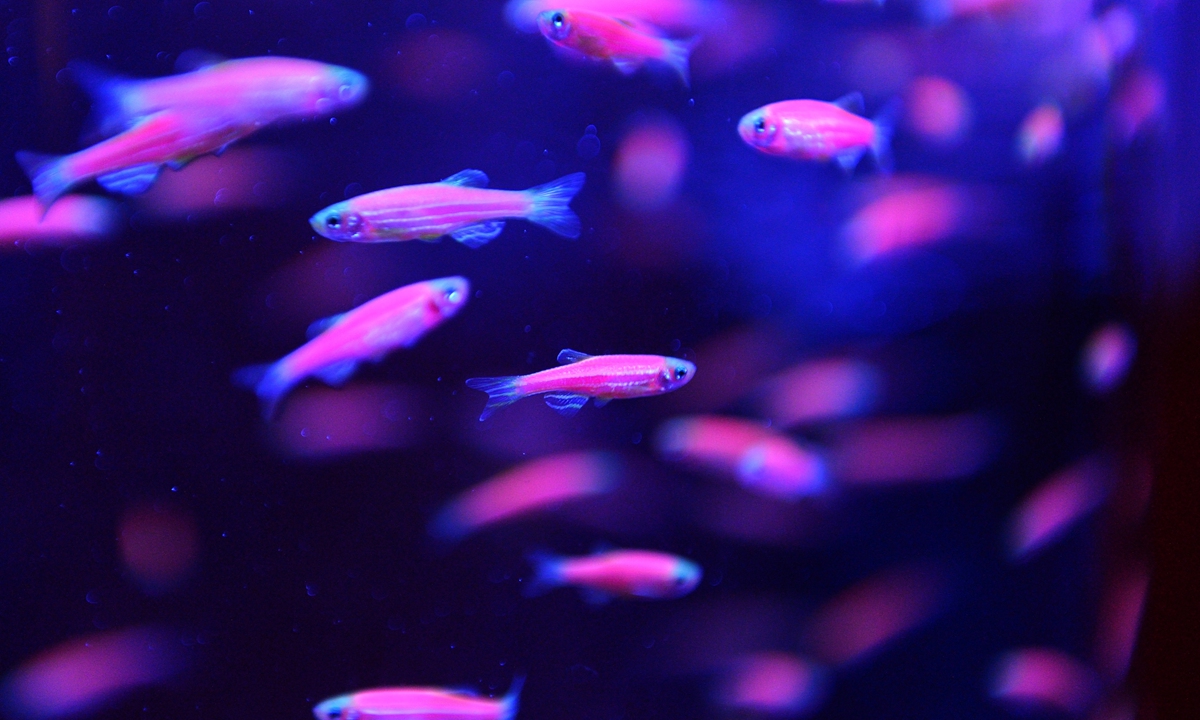
zebra Photo:IC
A group of zebrafish may soon be the newest residents in China's space station. The experiment of breeding zebrafish in the space station is mainly to study the interaction between fish and microorganisms in a small closed system, according to Zhang Wei, assistant to the commander-in-chief of the China Manned Space Engineering Space Application System.
As zebrafish are vertebrates, scientists can use them to study bone loss phenomenon, Zhang said at a recent event. Previously, many other organisms include space rice "Xiaowei," arabidopsis thaliana "Xiaonan," and multiple groups of nematodes have already visited the Chinese space station.
Zebrafish, which are small fish measuring between 3 to 4 centimeters in length, are vigorous and can reproduce quickly, with the ability to breed six to seven times a year. The reason zebrafish were selected as space station passengers is due to their high homology with human genes, with a similarity of up to 87 percent, chinanews reported.
As model organisms, their physiology, development, and metabolism are highly similar to those of mammals, making them a reliable tool for simulating and predicting human physiology and pathology.
Tiangong has prepared a space home for them - the life ecological science experiment system located in the Wentian lab module. It is a closed "aquarium" with about one liter of water that can breed four to five zebrafish, as well as some algae and microorganisms.
An automatic feeding device has been developed. An intelligent system that monitors fish growth and automatically feeds them was developed and entered space with the launch of the Wentian lab module in 2022.
Global Times




